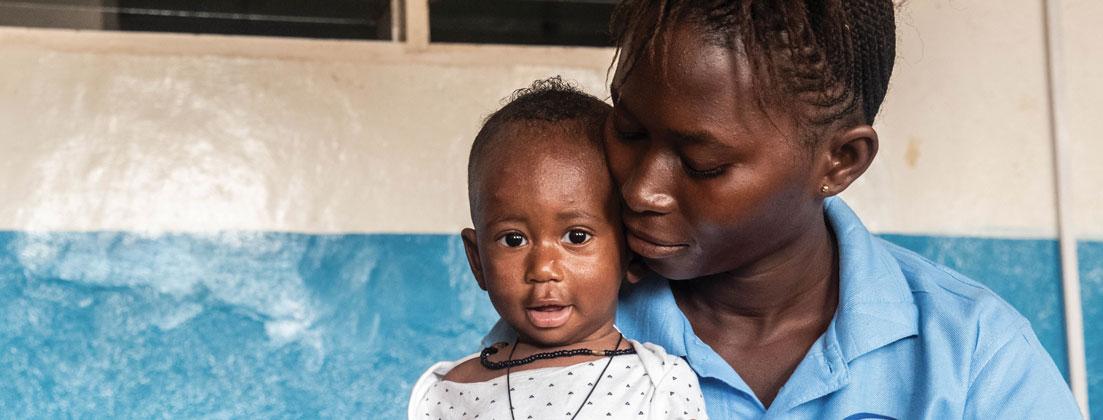How do we protect infants from malaria?

In the West African country of Sierra Leone, malaria-related illness and death rates are among the highest in the world, especially for children under five years of age. Addressing this crisis, researchers from ICAP at Columbia University’s Mailman School of Public Health are working with partners in Sierra Leone to offer preventive malaria treatment for babies nationwide—the first coverage of its kind in the world.
Known as intermittent preventive treatment in infants (IPTi), the coverage gives babies a course of antimalarial medicine with routine immunizations, whether or not the infants have malaria. The World Health Organization recommends IPTi in areas with moderate or high risk of malaria transmission, such as all of Sierra Leone.
In 2016, ICAP began a partnership with Sierra Leone’s National Malaria Control Program (NMCP), with support from the US Centers for Disease Control and Prevention (CDC), to make the nation the first country to roll out IPTi nationwide. Today, ICAP is supporting the NMCP in its goal of reducing malaria-related illness and death by 40 percent by 2020.
“IPTi is a proven strategy to reduce malaria and its complications in infants, and I am happy that ICAP, with support from CDC, was able to partner with NMCP to scale up the program nationally,” said Mame Awa Toure, MD, MSc, country director for ICAP in Sierra Leone. “We look forward to continued partnership in strengthening Sierra Leone’s health care systems and health workforce for the country’s future.” Learn more.
Make Your Commitment Today
